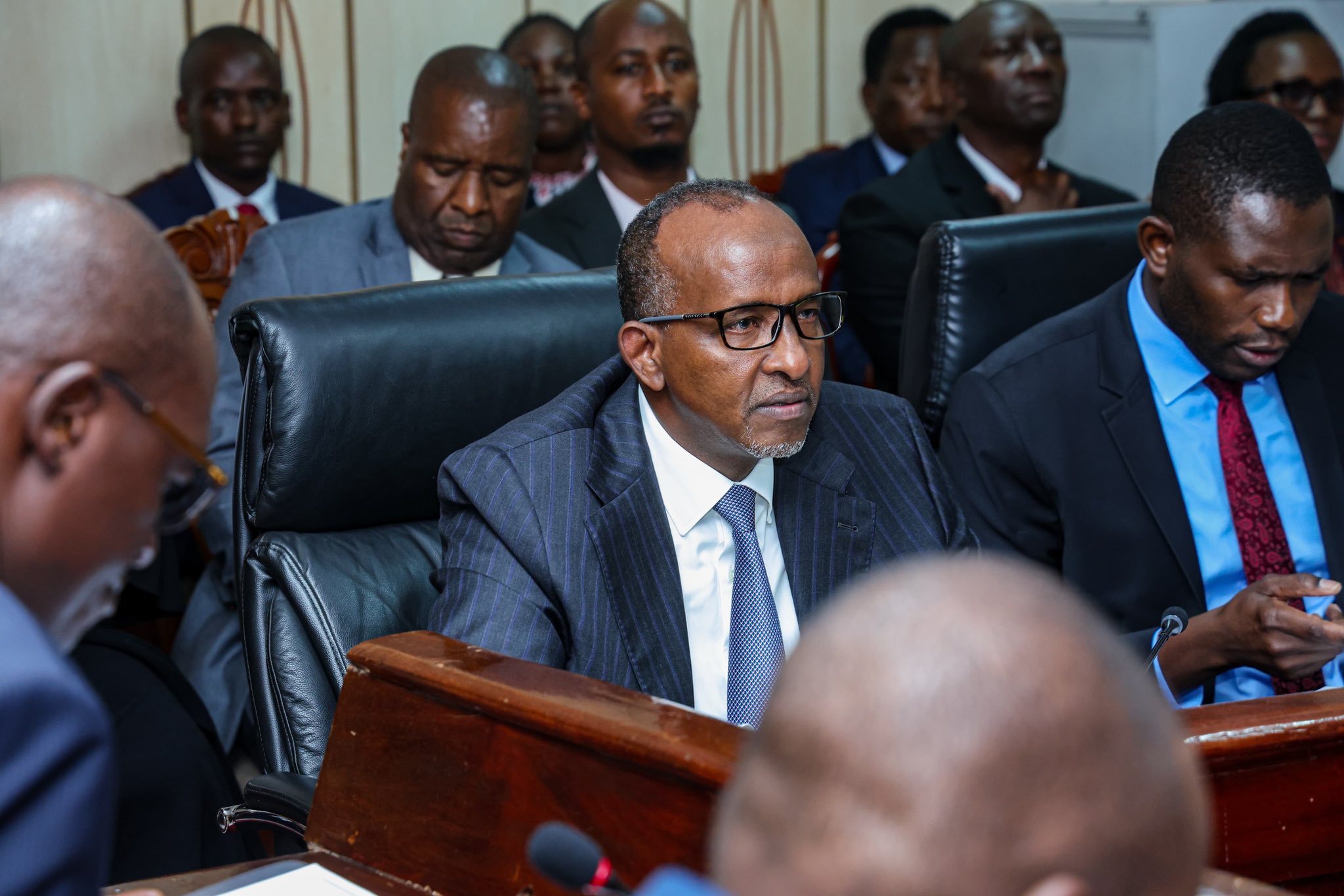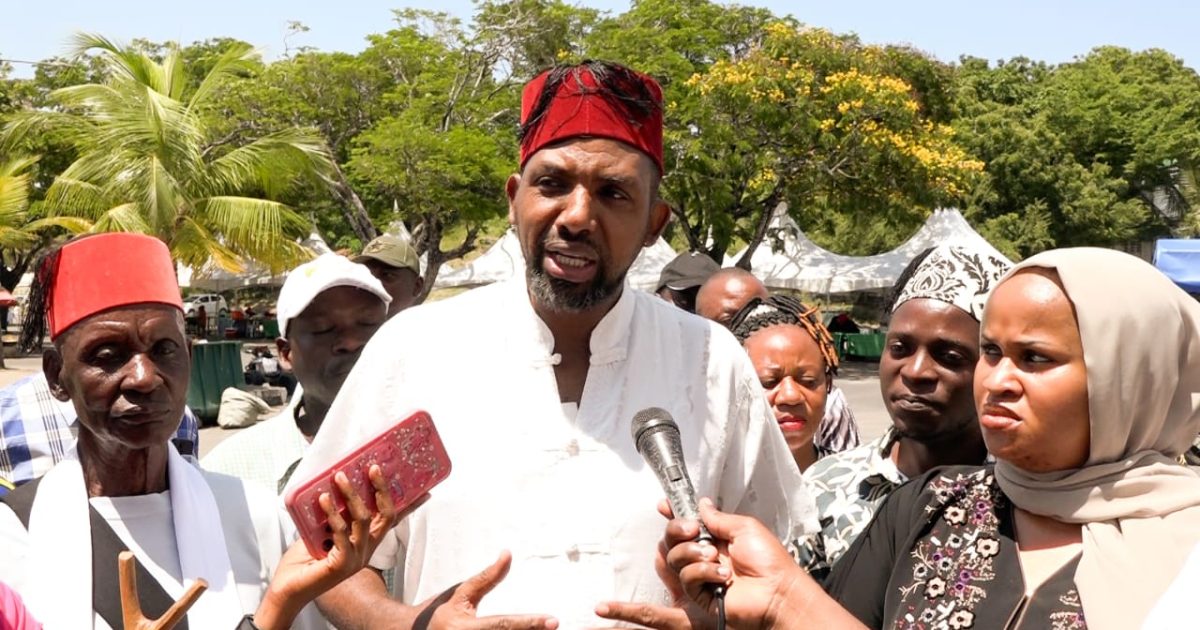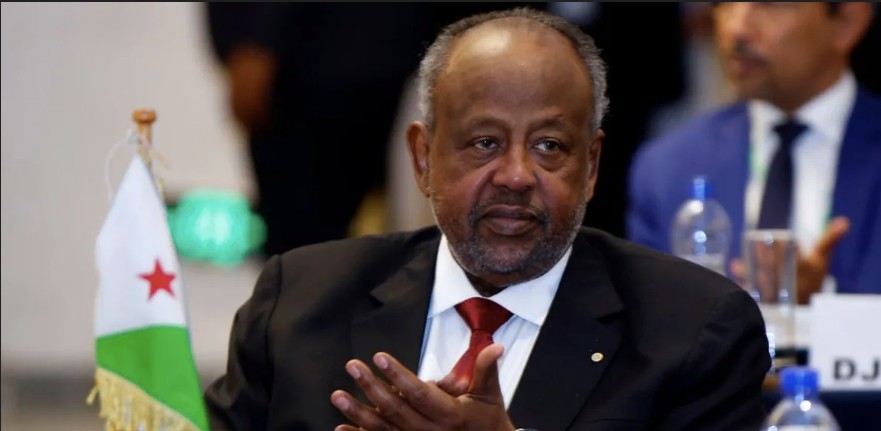Fraud and system abuse led to end of EduAfya medical scheme - Health CS Duale
Duale claimed some unnamed hospitals exploited loopholes in the programme, leading to the misappropriation of government funds.
Health Cabinet Secretary Aden Duale has attributed the discontinuation of the EduAfya medical insurance scheme to widespread fraud, misuse of funds and instances of double payments.
Appearing before the Senate on Wednesday, Duale claimed some unnamed hospitals exploited loopholes in the programme, leading to the misappropriation of government funds.
More To Read
- Ministry of Health confirms maternal deaths in Kiambu, contradicting Wamatangi’s claims
- NHIF arrears threaten healthcare reforms, Ministry of Health warns
- Health committee session turns chaotic as Duale clashes with MP Kibagendi over SHA probe
- Government proposes new health authority to regulate facilities, protect patients
- Five suspects to be arraigned over SHA hospital claims fraud
- MoH rolls out new overseas treatment framework under SHI
Responding to a question from Nairobi Senator Edwin Sifuna, Duale explained the challenges faced by the programme, which provided comprehensive medical coverage for secondary school students under the now defunct National Health Insurance Fund (NHIF).
“The Ministry of Education engaged the former NHIF to provide comprehensive medical cover for all students in public secondary schools. This scheme, branded EduAfya, commenced on May 1, 2018, and was renewable annually for a period of five years, lapsing December 31,” Duale said.
However, he pointed out that the programme encountered several issues related to the system used for its implementation, the National Education Management Information System (NEMIS).
“Fraud, misuse, and double payment were found in the EduAfya programme arising from single treatment,” Duale said, explaining that these issues led the government to declare the scheme unsustainable.
Duale confirmed that the government decided to consolidate all special health schemes into one under the Social Health Authority (SHA), which now manages the new Social Health Insurance Fund (SHIF).
 Health Cabinet Secretary Aden Duale when he appeared before the National Assembly's Departmental Committee on Health on May 14, 2025. (Photo: Ministry of Health)
Health Cabinet Secretary Aden Duale when he appeared before the National Assembly's Departmental Committee on Health on May 14, 2025. (Photo: Ministry of Health)
The Social Health Insurance Act of 2023, which repealed NHIF, established three new funds: the Primary Healthcare Fund, the Social Health Insurance Fund, and the Chronic Illness and Emergency Fund. The reforms are part of the government’s broader efforts to enhance health coverage for all Kenyans, including secondary school students.
EduAfya was originally launched to cover all children in public secondary schools in Kenya. The programme, which targeted three million students, was aimed at fulfilling the Big Four Agenda on affordable healthcare. Under this scheme, the government paid a premium of Sh1,350 per student.
However, the scheme faced challenges, and in February 2023, a citizen petitioned the National Assembly to intervene over its poor implementation.
Joyce Cherono, the petitioner, expressed concern that the scheme was not being optimally implemented.
“The petitioner is afraid that if intervention is not made towards ensuring that the programme is optimally implemented, the gains envisaged from the scheme will be lost,” National Assembly Speaker Moses Wetang’ula said then.
As the government consolidates all health insurance schemes into the SHA, the focus is now on ensuring more efficient and sustainable health coverage for all.
Duale has now urged students in public secondary schools to utilise the services provided under the Social Health Authority, noting that the new system is designed to address the shortcomings that plagued EduAfya.
Top Stories Today












































